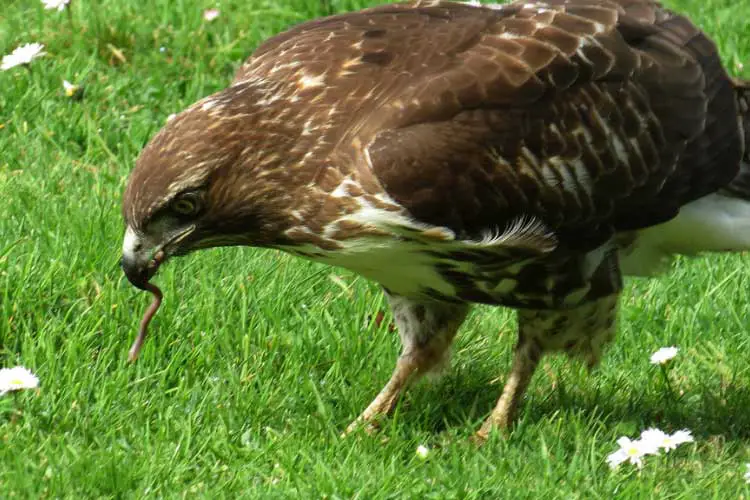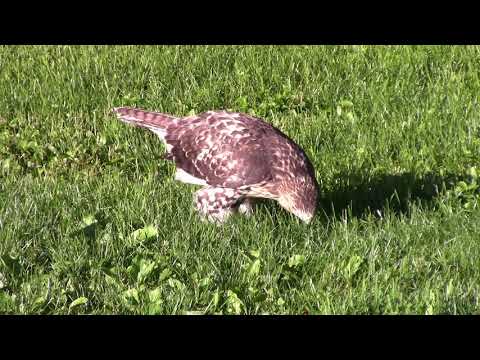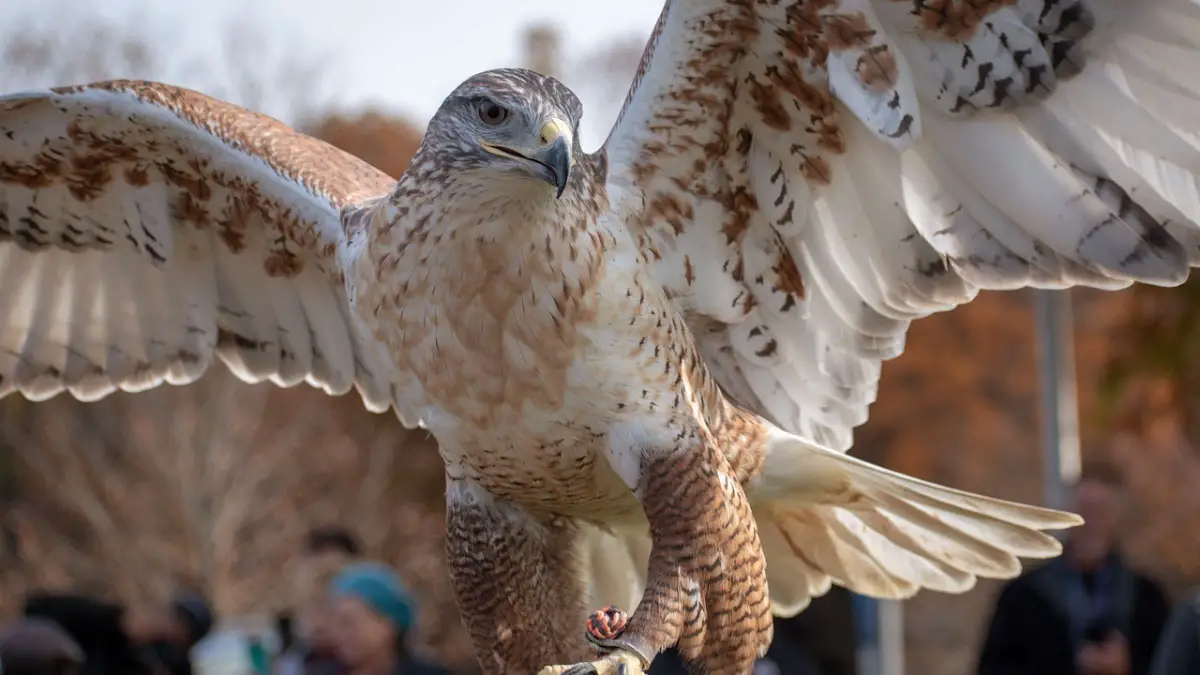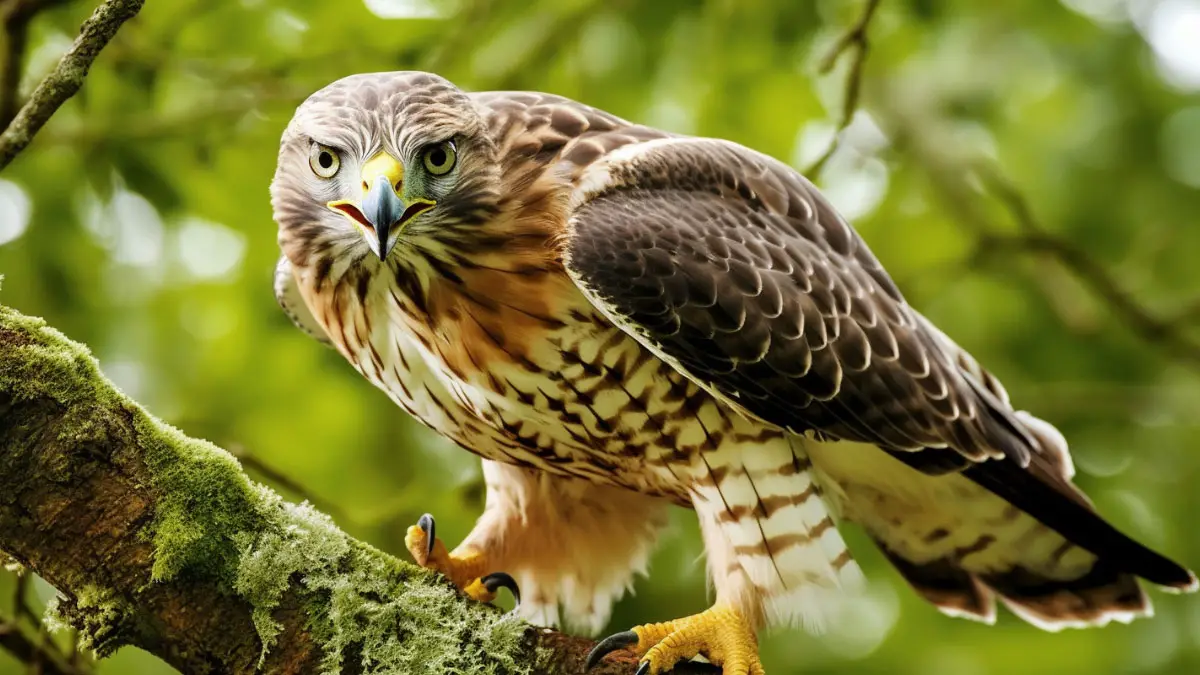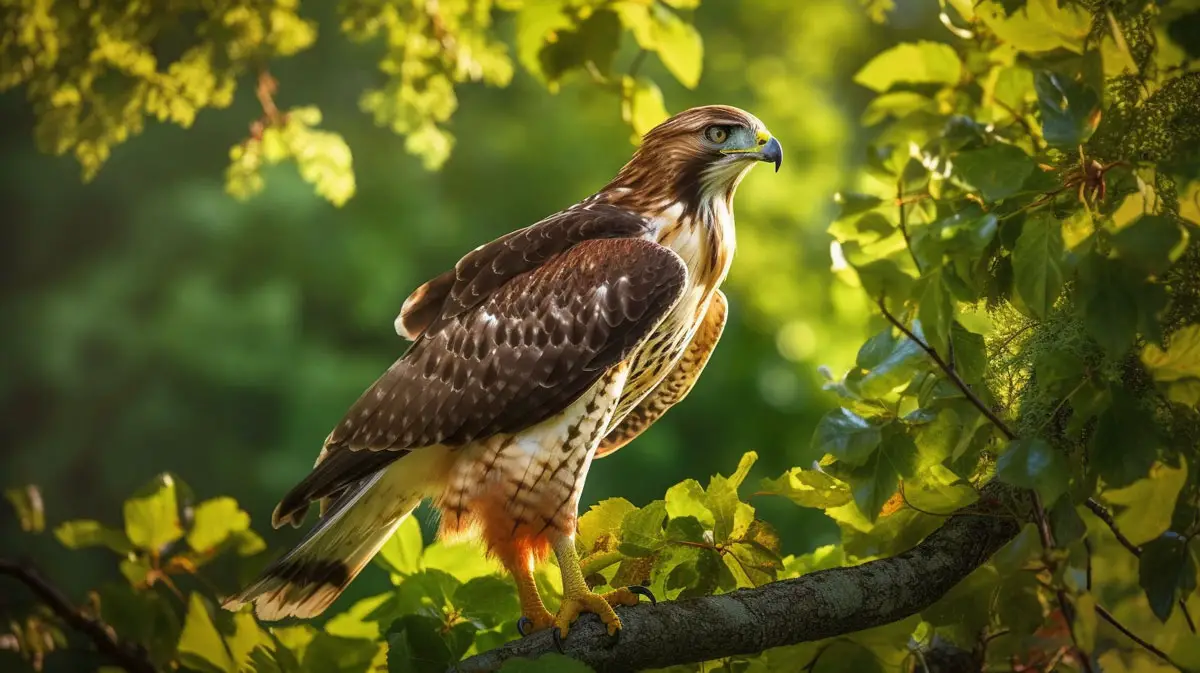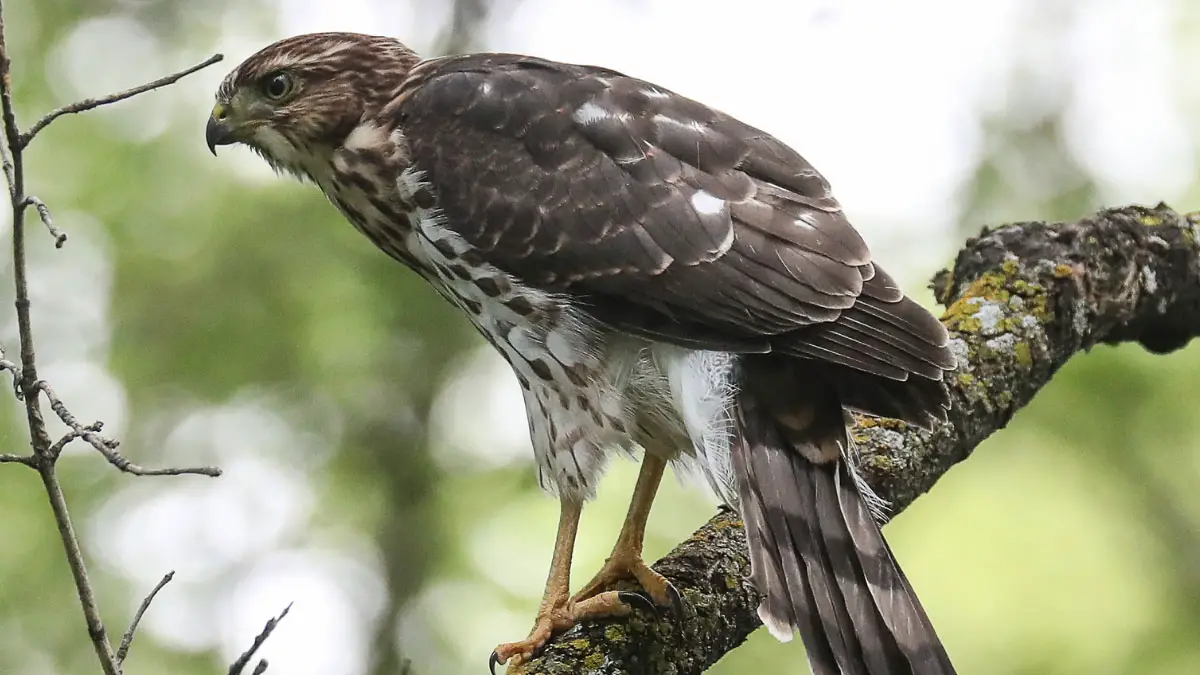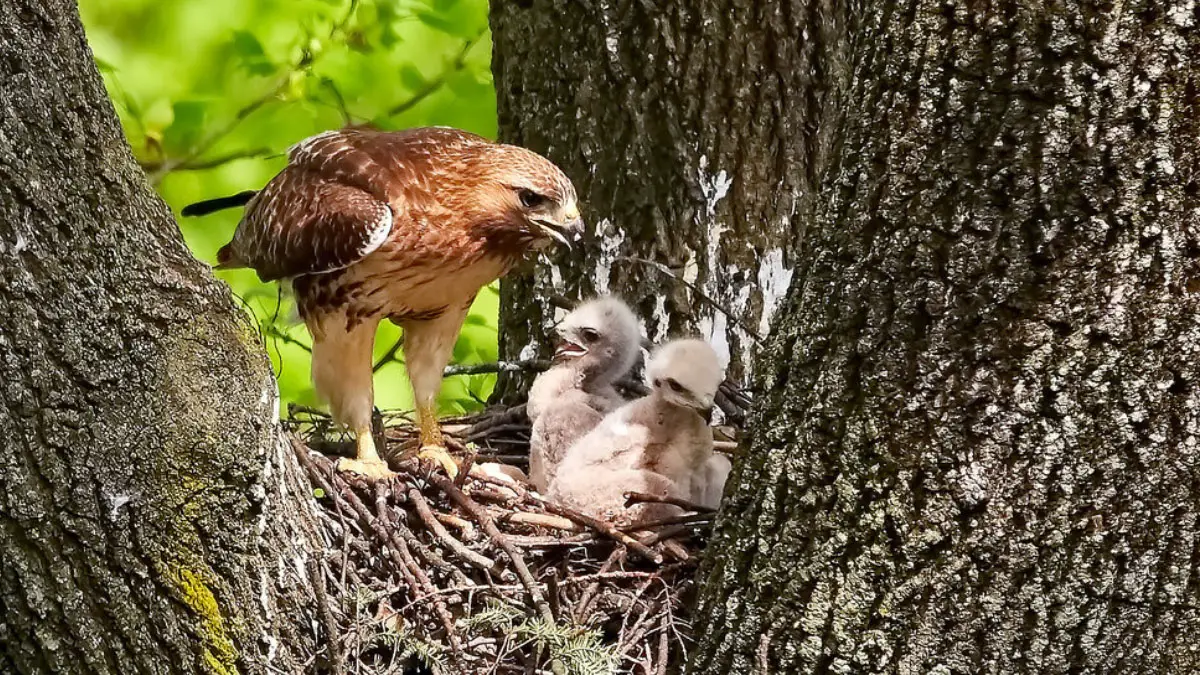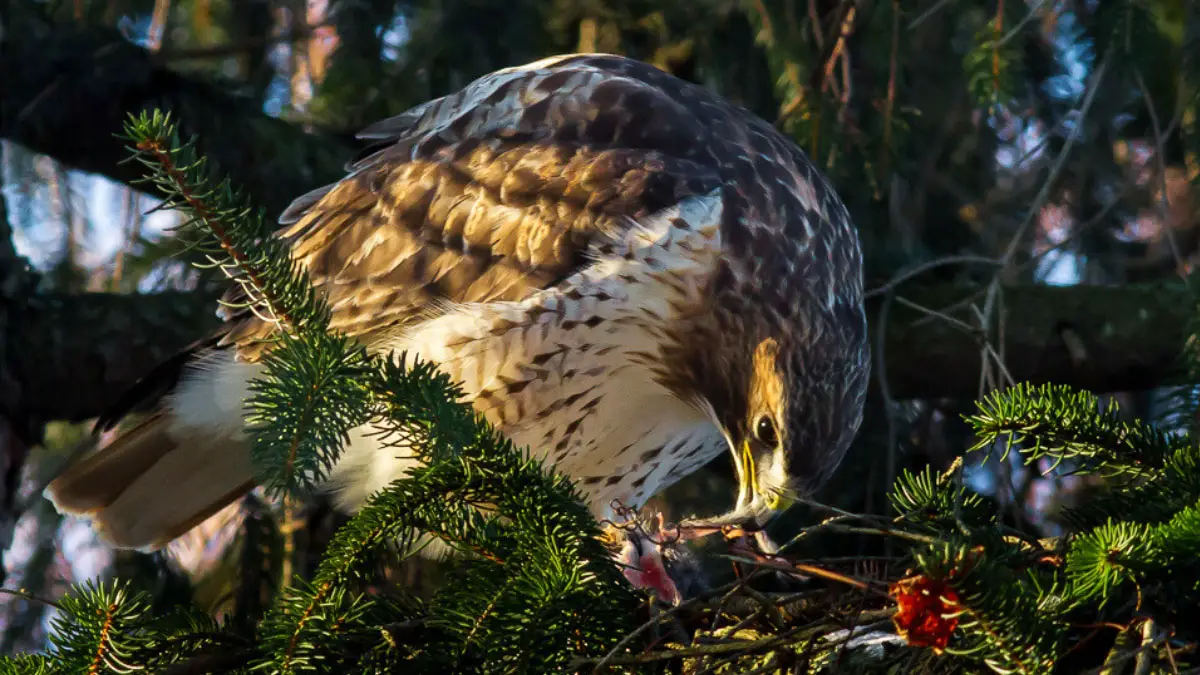Hawks can readily hunt down tiny animals even from a great distance and do it swiftly. That provides them the advantage of eating a wide variety of foods, including insects.
But do hawks eat worms? Though hawks eat several small animals and insects, worms are not their favorite thing on the menu. The protein does not last long after eating an earthworm; thus, they are not a worthy hunt. However, when food is scarce in certain areas, hawks may seek worms as a diet.
Reading this article will provide you with everything you need to know about hawks and their prey, including how they kill them and what they eat. Let’s dive right in!
Do Hawks Eat Worms?
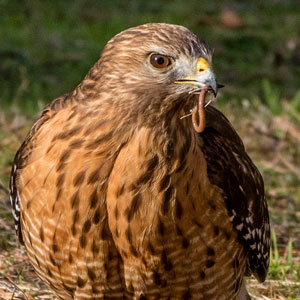
By James C Reber
The more you learn about hawks, the more fascinated you will get with them. It is interesting to learn why they resort to worms as the last option.
You might be wondering what kind of hawks gives the effort and hunt for worms; well, there is actually. They are called Red-shouldered hawks and may be found throughout eastern North America, the Californian coast, and northern to northeastern-central Mexico.
While most hawks like to dwell in deserts and grasslands, red-shouldered hawks prefer to hang out near ponds as well as other lakes and rivers. As you may have guessed, worms may be found in moist soil around ponds and lakes, and red-shouldered worms reside there. There is unquestionably a link.
However, the birds of prey are rarely seen eating worms, and there’s a good reason for it. Anyone can tell whether or not a hawk eats worms in one of two ways. These include either observing them in person or on a YouTube video or reading a scientific study on hawks to learn what they consume.
Yet, there’s a reason you have never heard of hawks eating worms. Even if the people doing the tests have never discovered worms, it doesn’t imply they aren’t there. Other hawk foods, such as mice or rabbits, include bones that may be found afterward using various scientific procedures.
On the other hand, a worm has no bones or anything that can be traced back to it. As a result, practically no evidence of their eating worms exists, which is only partially accurate. They exist, as we have already stated, and they are known as red-shouldered hawks.
How Does A Hawk Kill Worm
Although it may appear from afar that all hawks utilize the same strategies to hunt for their prey, this is not the case. A hawk may attack in a variety of ways, with various methods for different species of animals. For example, a hawk would not use the same strategy to pursue a rabbit as it would a grasshopper. Thus, the same goes for worms as well.
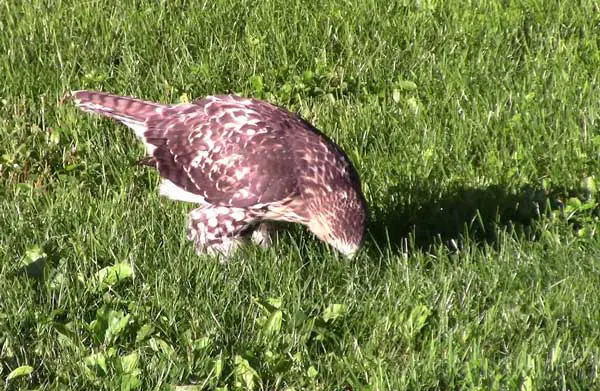
Here are the steps a hawk follows to catch a worm;
Ground Level Hunting
With a hawk’s lightspeed and vision range, there’s no way a worm would ever get away from a red-shouldered hawk once spotted. However, the main challenge for a hawk is spotting them.
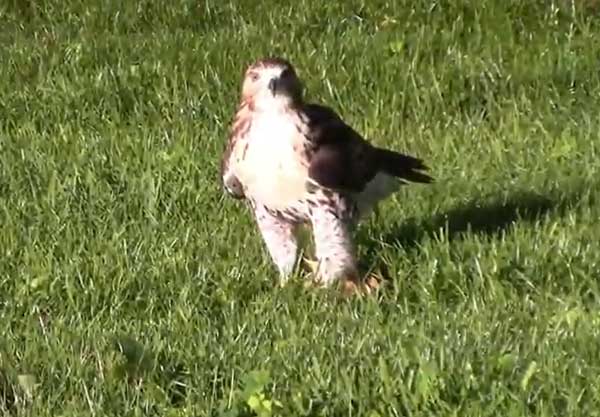
Even with such great vision, there is no denying that the relaxed worms are incredibly small. Thus, comes the ground-level hunting technique that these hawks use which is one of the least effort techniques that a hawk could ever use. Nevertheless, what counts here is what works for them.
Mindset
At first, from sitting on a tree branch, they observe the area with their superior eyes. They tend to search for the areas where their preferred prey, worms, might be present. Once correctly judged, the hawks will come to the ground level without any hurry of the target running away.
These hawks calmly sit in the predicted area and observe to find worms. At this point, the red-shouldered hawks know that all they have to do now is to spot the worms. As the worms won’t be able to do anything to escape, the hawks don’t care about catching them informed.
Run and Catch
The plan is simple here. Once a worm is spotted, the hawk instantly runs at lightspeed and tries to capture them. It’s done either with its sharp claws or beak and certainly their hunting skills. It completely depends on the red-shouldered hawk’s attitude on which it likes to implement. Nevertheless, most of them use their beaks.
However, as the worm is captured the next thing they like to do is swallow them without thinking any further. As one worm is not enough for a hawk’s stomach to fill, they keep repeating the process of running and catching around the area.
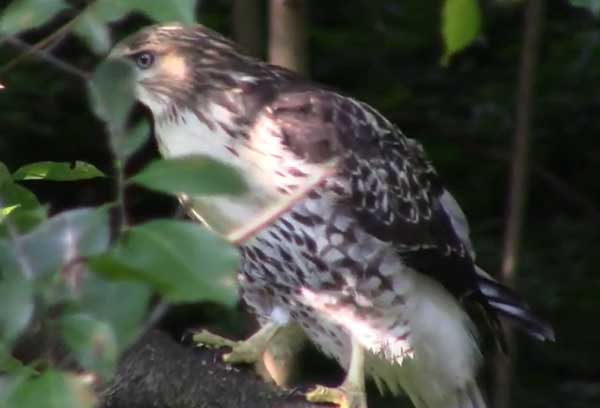
No, they don’t return to the branches and think again about where to hunt. The red-shouldered ones know that there are plenty in that area and thus walk on the ground level and run only when a worm is observed.
Which Hawks Eats Worm
Only red-shouldered hawks have been found to consume worms thus far. When there is a shortage of food, non-red-shouldered hawks are believed to go for worms as well. It’s unavoidable that worms are sometimes all a hawk needs to stay alive.
However, if there’s only a single worm, it’s probably not worth it for a hawk, but hawks may discover sites where there are a lot of worms as they are tremendous hunters.
Nonetheless, each hawk has its distinct diet. The only thing they have in common is that they both prefer to devour small mammals. An American Robin loves to go bird hunting, whereas a Red-Tailed Hawk prefers to go snake and lizard hunting. Each of them, it might be said, has its taste and primary targets.
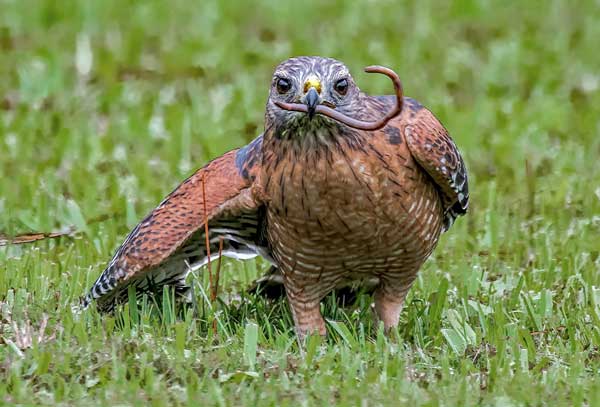
The hawks first try to find their favorite dishes to hunt and if they fail to do so then they would have no other choice but to go for other targets. Furthermore, there are 200 species of hawks so you can say that there are a lot of varieties in their taste.
FAQ
In this section, let’s look at some of the most frequent questions people have regarding Hawks and their diet.
Hawks in the city are the same as those seen in the wild. They all have one thing in common: they all do everything to stay alive. City hawks eat mice, rabbits, and even other birds in the city, whereas wildlife hawks devour snakes and other animals. Worms are also on the list if they can find one.
Even though they are looking for small mammals, they will not ignore people if they get in the way. Their attacks will only leave a scar, though it doesn’t mean they aren’t dangerous. They have the potential to induce infections and other serious problems.
Conclusion
It’s amazing to see how smart hawks are and can do anything to survive. It is difficult to answer weather do hawks eat worms or not in nature. But in general, hawks can eat worms for survival.
It’s quite amazing how they organize their attacks and respond to weather conditions, and there’s a lot to learn about them. Nevertheless, don’t ever try to mess with any nests that belong to hawks; they are not friendly to humans when it comes to their homes.
Do you want to know if hawks eat cats or grasshoppers? Read our articles about it to learn more.
